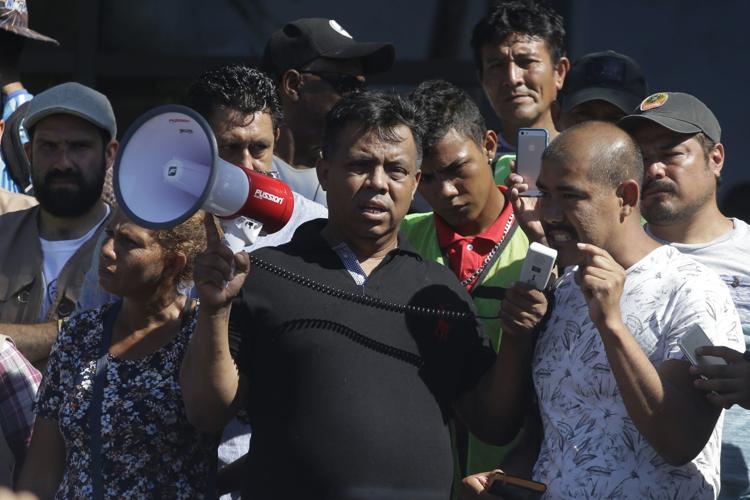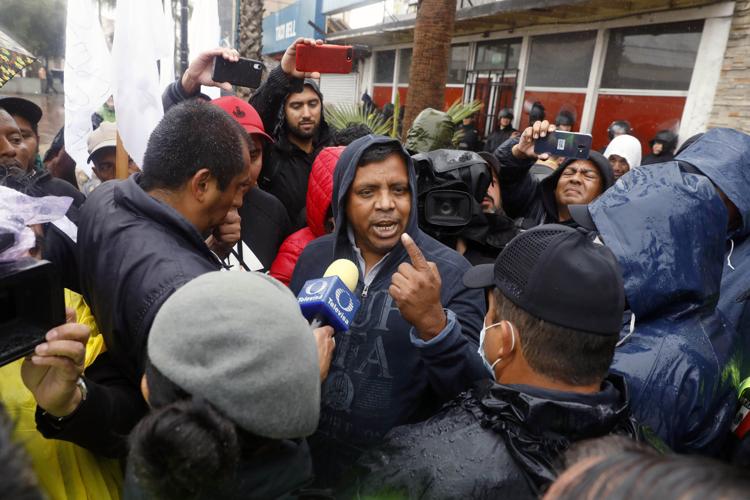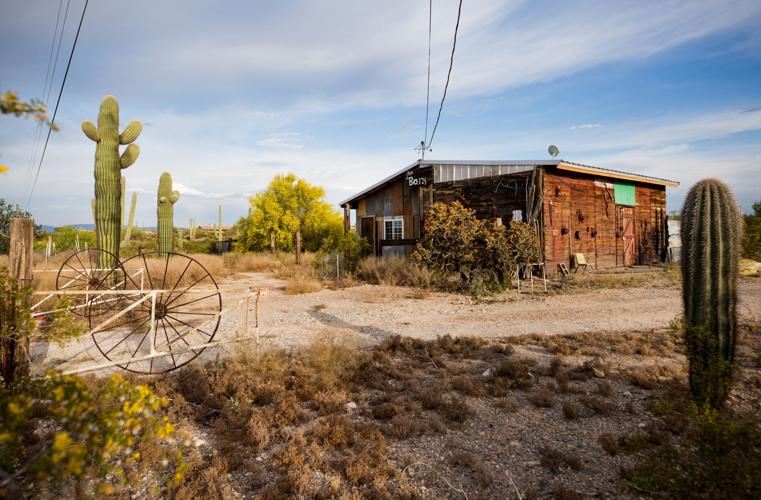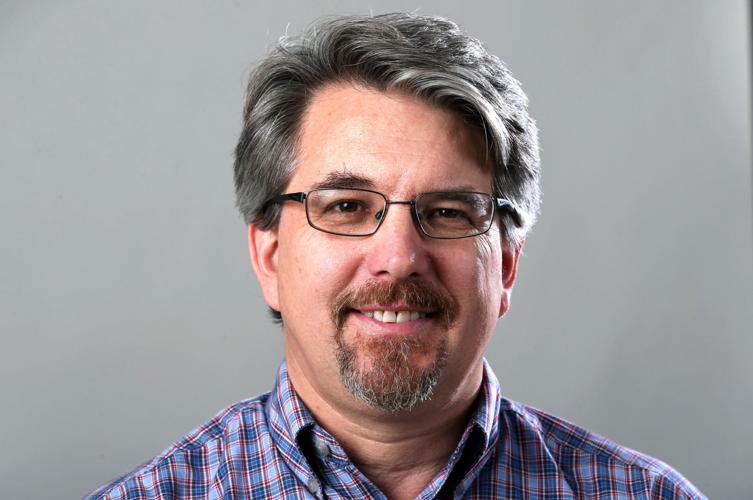One of the key questions jurors are likely to ask when they retreat to consider the case against Scott Warren: Where on earth was Irineo Mujica?
I’ve been able to watch two days of the case against Warren, the No More Deaths volunteer on trial in federal court, accused of harboring and conspiring to harbor two undocumented Central Americans. The case has a Mujica-sized hole in it.
He matters not just because of his key role in the events surrounding Warren’s arrest, but also because of his Forrest Gump-like presence in the subsequent news of 2018. As a leader of the migrant-support group Pueblo Sin Fronteras, Mujica helped start and organize the caravans of Central Americans across Mexico to the United States that became perhaps the country’s top political issue last year, prompting a military deployment and a national argument over wall-building.
The fact that he has apparently not been arrested, indicted, nor called as a witness in the Warren case is striking, because the government describes him as a key participant in the events that led to Warren’s arrest. In fact, in an April 2018 court filing, prosecutors warned the defense that if they call Mujica as a witness, they might be calling someone the government considers a co-conspirator.
Also, the government has had its chances, as my colleague Curt Prendergast noted in his story in Tuesday’s Star, to arrest Mujica. He reported on two instances after Warren’s arrest in which Mujica, who is a U.S. citizen, was stopped by Border Patrol agents between the border and Ajo in the five weeks after Warren’s arrest.
But I’ll start before that, because the chronology makes the events clearer.
Before 2018 began, Mujica was a leader of Pueblo Sin Fronteras, which supports migrants by establishing shelters in Mexico and otherwise helping people heading for the United States. They had built a shelter in Sonoyta, Sonora, across the border from Lukeville and led previous, relatively unheralded caravans.
On Jan. 14, 2018, two Central Americans — Kristian Perez Villanueva from El Salvador and Jose Sacaria Goday from Honduras — walked out of the desert and up to a gas station at Why. In video-recorded testimony, both said they had jumped the border fence outside Sonoyta on Friday, Jan. 12, as part of a group of five people. But the other three members of the group dropped out of the crossing a few hours later, when they got thorns in their shoes and hands.
Perez Villanueva was carrying a cellphone, one that federal prosecutors said Mujica had given him, back when the Salvadoran was staying in Sonoyta. Evading Border Patrol agents, they arrived at first one gas station, then another near Why and Ajo, when a man spontaneously drove up and spoke with them.
Prosecutors and a Border Patrol agent identified that driver as Mujica. During the videotaped testimony played in court Monday, Perez Villanueva said:
“I don’t know how it was that he saw us. He said that he recognized us. He asked me about the other three that had been coming with us. He said that one of them was a very good friend of his, and he said that he could help us.”
So, according to this testimony, Mujica knew there were supposed to be five members of the group. He drove the two who made it the short distance to “The Barn,” a house in Ajo used by Warren and other volunteers for No More Deaths, assistant U.S. attorney Nathaniel Walters said in his opening statement. Three days later, on Jan. 17, Border Patrol agents arrested the two Central Americans and Warren, and they quickly got information about the vehicle and the man who had driven them to the house.
A week later, Border Patrol Agent Brendan Burns reported to the checkpoint on Arizona 85, between Lukeville and Why, to inspect a van driven by Mujica. It had water bottles and other indications of use by border-crossers, and it matched the vehicle described by the two Central Americans, but agents didn’t question him about the widely reported incident at The Barn a week before.
On Feb. 14, Warren was indicted by a federal grand jury on three counts: One count each of harboring Perez Villanueva and Sacaria Goday, and one count of conspiracy to harbor them. The indictment doesn’t say with whom Warren is accused of conspiring, but a subsequent search of Warren’s phone showed calls he had made with Mujica, among others.
Warren’s attorneys said those were innocent calls about helping migrants, but Walters implied they were signs of possible planning between the two.
On Feb. 21, Mujica was driving the same van when stopped at the same checkpoint, but he had a passenger, a man who admitted to being in the country illegally and was arrested.
Despite Warren’s arrest and indictment on conspiracy charges, and an investigation that had already implicated Mujica, the agents let him go.
The year went on. Video testimony was taken from the two Central Americans in March, and in April, Mujica and Pueblo Sin Fronteras organized the year’s first caravan from Central America. It started with more than 1,000, then ended, after people dropped out along the way, with a couple of hundred people arriving at the border.
President Trump responded angrily on Twitter and demanded that troops be sent to the border in response to the caravan. This was the doing of Mujica and Pueblo Sin Fronteras, as Warren’s case plodded forward.
Then October came, and the U.S.’ midterm election approached. More caravans formed in Central America, and though Pueblo Sin Fronteras did not initiate them, Mujica and company went to southern Mexico to help organize them. On Oct. 18, Mujica was arrested in Chiapas, but the next day he was released.
Trump slammed the Democrats continually over the caravans in the run-up to the election, motivating Republican voters, but not enough to keep the House in Republican hands. Mujica told reporters, “It is a shame that a president so powerful uses this caravan for political ends.”
Mujica continued crisscrossing the border long after Warren gave up his passport as a result of his arrest, in January 2018. The trial finally opened May 29 this year, and Prendergast and I asked defense attorney Greg Kuykendall that day if Mujica would be testifying. Kuykendall said he’s on the defense witness list. But nobody seems to know where he is.
If he testified, Mujica could possibly bolster either side’s case. Certainly the prosecution leaves something to be desired after the video-recorded testimony played Monday of the two migrants who said they barely talked with Warren or saw him during their two to three days in The Barn.
Prendergast reached Mujica by phone Monday morning, but it was just a brief call, in which he said he knew nothing about Warren’s case. Mujica didn’t respond to my calls or messages Tuesday.
It’s too bad he apparently won’t be showing up in federal court. His knowledge of last year’s events could be enlightening, not just over questions of Warren’s innocence or guilt, but also over the whole Central American migrant wave in which he played a role.
But of course, who knows what he knows? For either side, it could be awkward.







